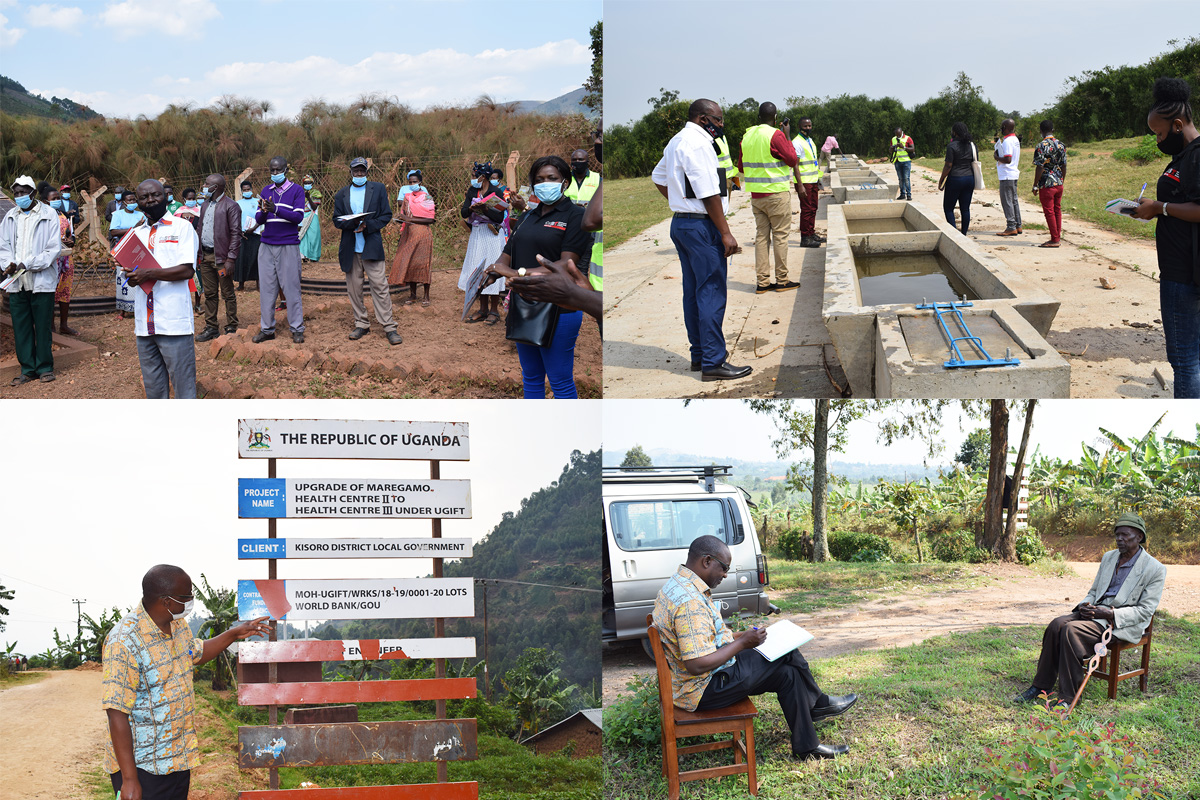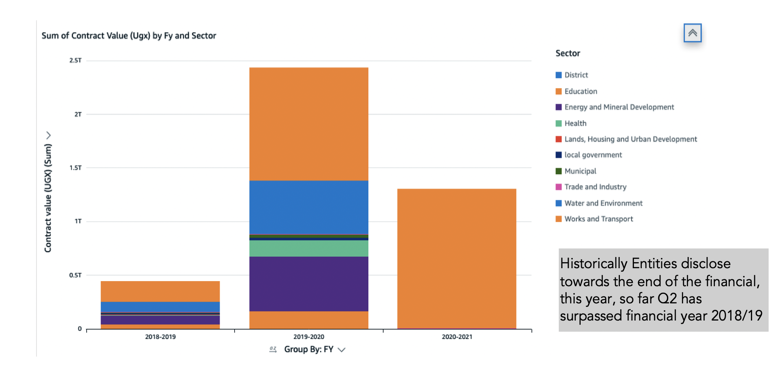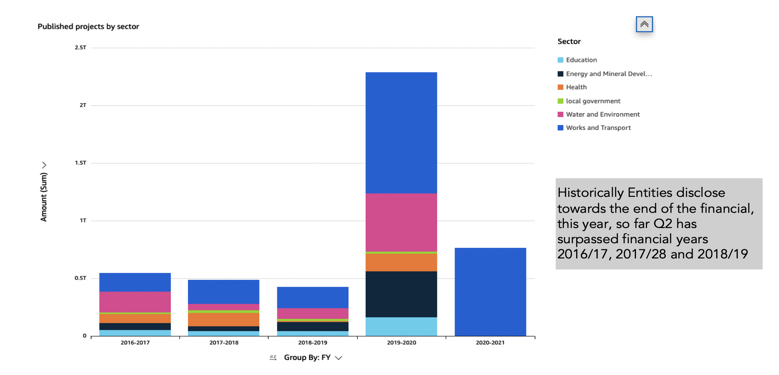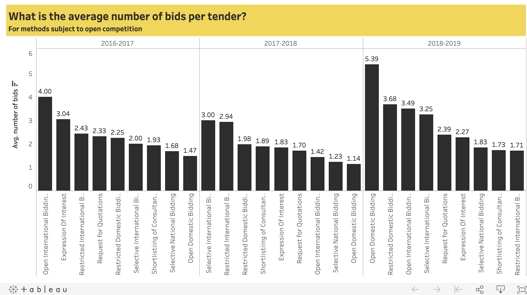CoST Uganda: a Collective Action approach to integrity in infrastructure procurement

An interview with Gilbert Sendugwa, Senior Regional Manager Africa of the Uganda chapter of CoST – the Infrastructure Transparency Initiative. He gives an insight into a recent UK Business Integrity Initiative-funded project on “Promoting fair business practices between the government and the private sector".
Can you tell us about the problem you are working to solve?
Yes: corruption in infrastructure procurement in Uganda. It undermines our country’s development. It manifests itself in unnecessary projects, substandard work or unnecessarily expensive work. Resources are frequently diverted, and there are unjustified or unexpected price increases. CoST Uganda assurance reports have consistently revealed cost and time overruns, among other issues.
CoST Uganda is working to turn this situation around. The UK’s Business Integrity Initiative Challenge Fund recently supported our efforts by funding a special Collective Action project. The project aimed to bring the government and private sector together to promote fair business practices. Specifically, we aimed to:
- Promote better data disclosure through the Open Contracting for Infrastructure Data Standard (IDS) across projects in Uganda.
- Increase competition in doing business with government agencies.
- Strengthen transparency in procurement processes for infrastructure projects.
The project supports the central goal of the global CoST initiative, which is to promote transparency in public infrastructure investments. The idea is that enhancing data disclosure on infrastructure projects helps to inform and empower businesses and citizens. This knowledge enables them to hold decision-makers to account.
What was the reaction from business?
A really encouraging one. We’ve basically managed to flip the narrative around bribery and infrastructure procurement.
Business leaders used to see bribes as an opportunity to engage in tenders. They said things like “a bribe helps to get things done”. Yet at the same time, everyone was frustrated at being forced to bribe. There’s only so much you can milk a cow!
Through our discussions under this project, business leaders realised that:
- others were struggling with the same issues;
- corruption undermines a healthy and sustainable business climate;
- increased disclosure according to the CoST standards could provide equal access to information to all bidders;
- this equal access to information helps level the playing field.
In other words, construction companies in Uganda increasingly see that business integrity is beneficial for all and can actually save them money.
What effect has there been on public-private engagement?
A robust and transparent platform for dialogue between government and business has grown up under this project.
Through regular meetings and webinars, business representatives have started to engage with government on particular pinch points. The Collective Action approach is helping to build trust between the parties.
One pinch point is the so-called reservation regulation. This states that foreign companies building infrastructure in Uganda are required to employ local companies and staff for at least 30 percent of the work. A lack of transparency means foreign contractors often get away with giving Ugandan businesses only low-skilled work. There is no opportunity for Ugandan companies to build capacity and experience. Disclosure according to the CoST standards, so that everything is done in the open, would help remedy this situation.
Other areas of discussion between the government and business are co-development of an industry code of ethics, training for SMEs on procurement regulations, plus effective mechanisms for reporting allegations of bribes.
How has data disclosure improved – and improved transparency?
During the project we achieved a huge jump in data disclosure on infrastructure projects. The contract value of disclosed data went from around UGX 0.4 trillion (USD 109 million) in the financial year 2018–19 to nearly UGX 2.4 trillion (USD 653 million) in 2019–20.
The Ugandan government procurement portal has been redesigned and now incorporates 20 of the 40 data points of the CoST IDS, up from 12 previously.
Along with more disclosures of projects and data, as the project progressed we saw more use of the data and increased awareness and transparency.


These data disclosures are vital to the transparency of procurement projects. They include issues like variations in the price, duration and scope of the contract and the reasons for these.
It is also important to make disclosed data easy to use and interpret through dashboards and infographics. You can explore the data here: Open Data Dashboard.
How do you build trust between stakeholders?
This was a second big achievement for us. There has been a clear improvement in trust in the procurement processes and partnerships amongst business, government and CSOs.
Trust is hard to measure in statistics, but we can for example point at the increase in bids for tenders. Procurement agencies told us they used to struggle to get even the minimum number of three businesses bidding for contracts. Without confidence in the system, nobody engages.
Information sessions on specific tenders helped to build trust, along with increased disclosure. Now bidders are banging at the doors. From an average of only 1.6 bidders per tender in 2019, this has risen to an average of 12.5 bids per tender in 2020 - a huge improvement in competition that should result in better outcomes for citizens.

How did the private sector contribute to emergency covid-19 procurement guidelines in Uganda?
First, I’d like to emphasise the fact that the private sector was invited to participate in the development of emergency procurement guidelines to deal with the covid-19 pandemic.
Until recently, the policy environment around public infrastructure projects has not been conducive to private sector participation. The fact that businesses could contribute their expertise and knowledge to improve the policy environment is already a success.
CoST Uganda and other stakeholders were consulted on what issues the guidelines would address as well as on various versions of the draft. Thanks to our intervention, the guidelines include key elements on disclosure and citizen engagement. The procurement authority approved these but we are still awaiting final clearance by the Office of the Attorney General.
What lessons can you share with fellow Collective Action practitioners?
The project highlighted several things that we have found throughout our work at CoST, both in Uganda and internationally.
- Evidence and facts empower stakeholders, drive contractive engagement and promote trust.
- Anti-corruption and ethics training is essential for companies – it helps them to understand and use data as well as the competitive advantages of business integrity.
- Public officials also benefit from sustained training, learning and reflection sessions. These drive changes in attitudes and behaviour, as well as increasing openness.
- It’s also vital to empower citizens to with high-quality and accessible information – we reached tens of thousands via Facebook and Twitter alone, plus millions via TV and radio.
- Constructive engagement and positive messaging are helpful in getting buy-in from both government and business on promoting fair business practices.
So is Collective Action a win-win-win approach?
For CoST Uganda, absolutely. There are rarely win-win-win situations in anti-corruption, but there are clear benefits in our work for all three stakeholder groups:
- The government benefits from better management of public infrastructure projects, including a much larger pool of bidders and more competitive prices.
- Businesses benefit from an improved investment climate and level playing field.
- Citizens benefit from better value for money, better quality infrastructure and greater trust in both government and the private sector.
We look forward to building on our success and continuing to drive fair business through a Collective Action approach – in Uganda and across the region as the regional Secretariat for the CoST – Infrastructure Transparency Initiative.
About the UK Business Integrity Initiative and Challenge Fund
The UK's Business Integrity Initiative Challenge Fund was launched to support innovative, business-focused, Collective Action initiatives aiming at reducing corruption or promoting human rights to improve the investment climate in emerging markets and developing countries. IMC Worldwide has been working closely with the UK Foreign, Commonwealth and Development Office (FCDO) as the Business Integrity Initiative Challenge Fund Manager. Find out more.
The UK Business Integrity Initiative previously supported a project of the Basel Institute to provide training and guidance packages to small- and medium-sized businesses on anti-corruption compliance, corruption and bribery prevention, and anti-corruption Collective Action. Although the subsidies have now ended, the Basel Institute continues to provide these cost-effective and tailored packages to interested SMEs all over the world. Find out more.
See also:
- See a July 2020 interview with Joe Chingani, Chairperson of CoST Malawi: Corruption in construction – how the CoST initiative is building a better business environment in Malawi
- Learn about CoST Uganda on the B20 Collective Action Hub
- Follow on Twitter: CoST Uganda @CostUgChapter and Gilbert Sendugwa @GilbertSendugwa


